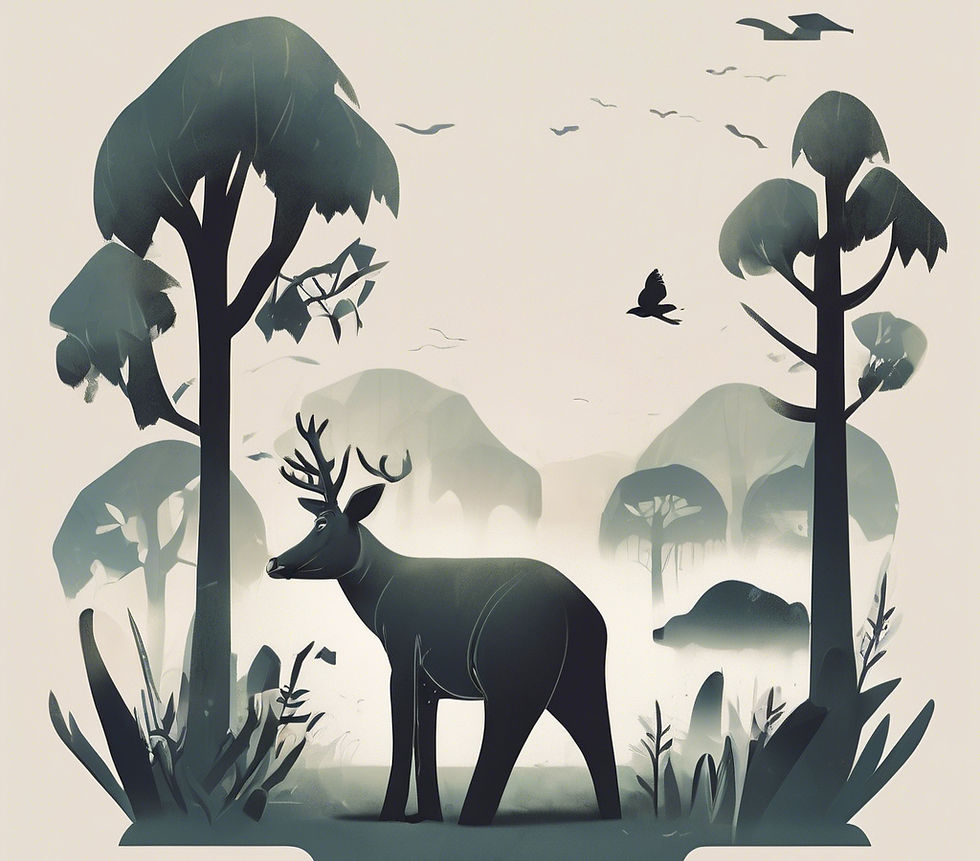Why Today’s Inaction Steals the Future?
- Yen Nguyen
- Sep 20, 2025
- 2 min read
Atitlán grebe
20-09-2025
Awards are something everyone admires. But the most prestigious awards are rare. Usually, people have to “create” their own standards to achieve them.In “Highest Honor”; Wild Wise Weird (2024)

Thirty years ago, the 1992 Earth Summit in Rio de Janeiro laid the foundation for global climate and biodiversity governance, establishing the UN Framework Convention on Climate Change (UNFCCC) and the Convention on Biological Diversity (CBD). Yet since then, climate change and ecosystem loss have only accelerated. Despite overwhelming scientific consensus and mounting evidence, political and economic systems remain dominated by a growth-first mindset, delaying urgent action.
In their paper “The Great Intergenerational Robbery,” Gadgil and colleagues [1] frame this failure as an unprecedented theft from the young and unborn. They argue that today’s generation has enjoyed economic gains while passing escalating ecological costs to those who follow. Each year of delay narrows future options, raises risks, and forces harsher choices. This, they stress, is not ignorance but robbery—committed in plain sight.
The paper identifies several drivers of this inertia. Vested interests—particularly the wealthiest 10% of people responsible for more than half of global emissions—actively resist transformative change. Complex trade-offs create political gridlock, while misinformation campaigns deliberately undermine climate science, echoing the tactics once used by the tobacco and asbestos industries [2,3].
Yet the authors emphasize it is not too late. They call for collaboration across generations, ensuring that youth and marginalized voices help shape both research and policy. They urge science to move beyond diagnosing problems, focusing instead on actionable reviews that expose policy capture, highlight successful transformations, and amplify stories from vulnerable communities. Collective action is, therefore, far more powerful than isolated efforts, requiring scientists, governments, businesses, and civil society to join forces [1,4].
Human prosperity ultimately depends on ecological resilience, just as human choices determine planetary stability [5]. Recognizing this interdependence strengthens society’s Nature Quotient (NQ)—our collective capacity to perceive and act on ecological feedbacks for survival and continuity. Cultivating higher NQ means rejecting short-term enrichment at nature’s and future generations’ expense, and embedding ecological justice into governance, economics, and daily life [6].
Avoiding intergenerational robbery, in essence, requires a fundamental shift in values: from treating the planet as disposable to stewarding it as the shared inheritance of all generations.
References
[1] Gadgil A, et al. (2022). The great intergenerational robbery: A call for concerted action against environmental crises. Annual Review of Environment and Resources, 47, 1-4. https://doi.org/10.1146/annurev-environ-061322-013248
[2] IPCC (2022). Climate change 2022: Impacts, adaptation, and vulnerability. Intergovernmental Panel on Climate Change.
[3] Oreskes N, Conway EM. (2010). Merchants of doubt. Bloomsbury Press.
[4] Ripple WJ, et al. (2023). Many risky feedback loops amplify the need for climate action. One Earth, 6, 86-91. https://doi.org/10.1016/j.oneear.2023.01.004
[5] Nguyen MH. (2024). How can satirical fables offer us a vision for sustainability? Visions for Sustainability, 23(11267), 323-328. https://doi.org/10.13135/2384-8677/11267
[6] Vuong QH, Nguyen MH. (2025). On Nature Quotient. Pacific Conservation Biology, 31, PC25028. https://doi.org/10.1071/PC25028




Comments